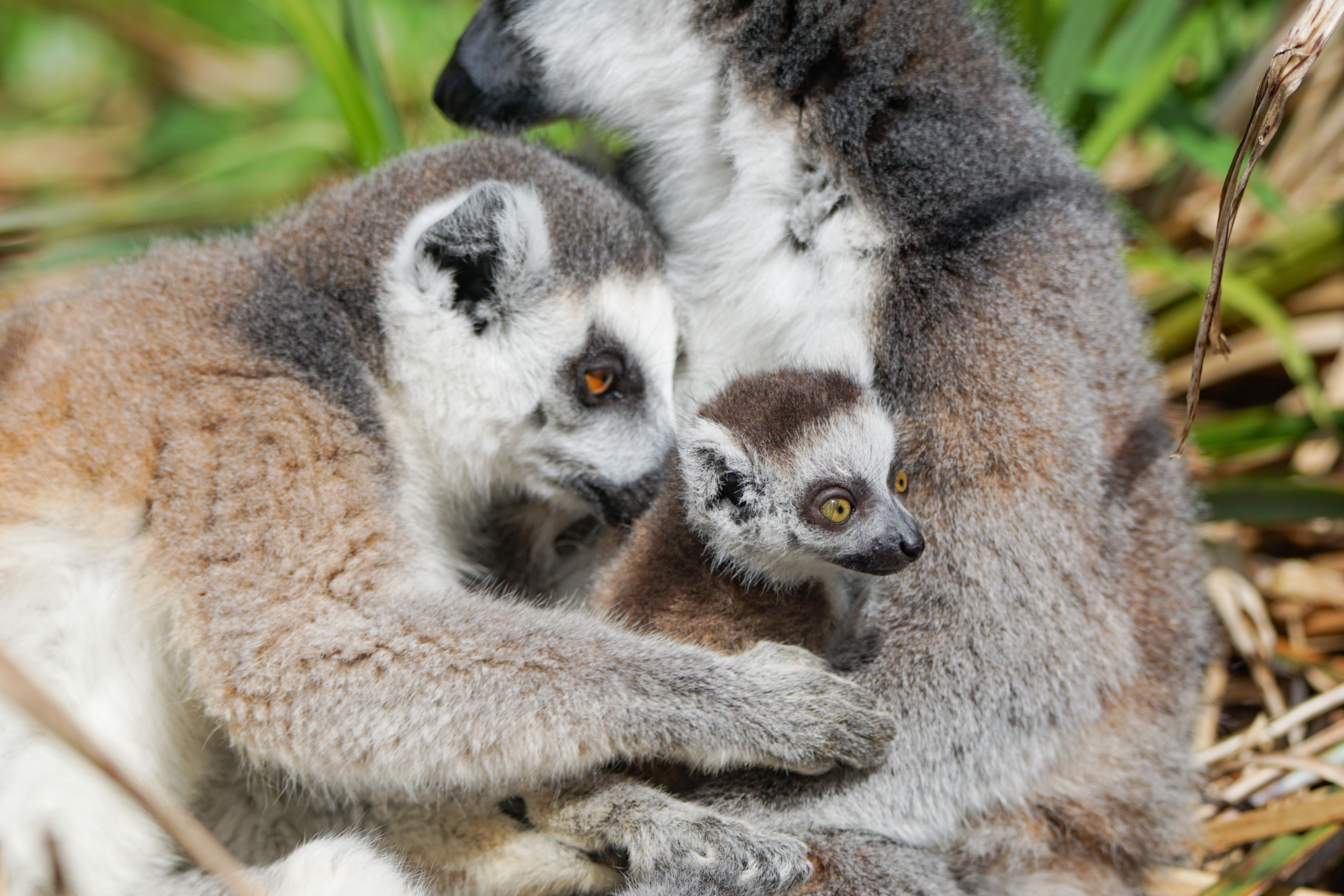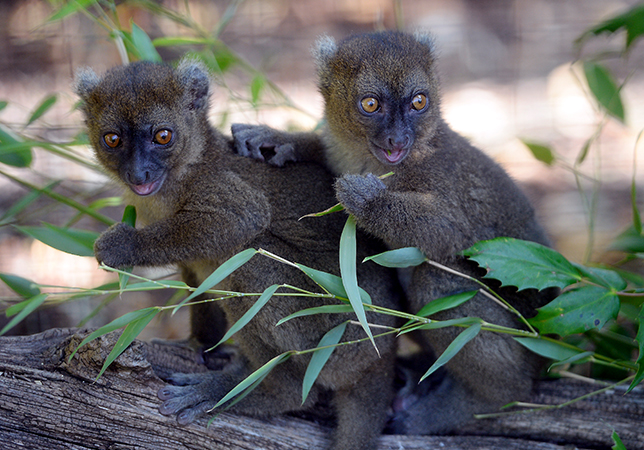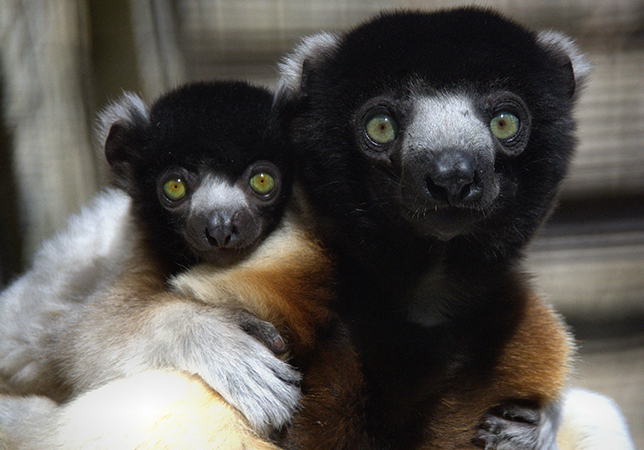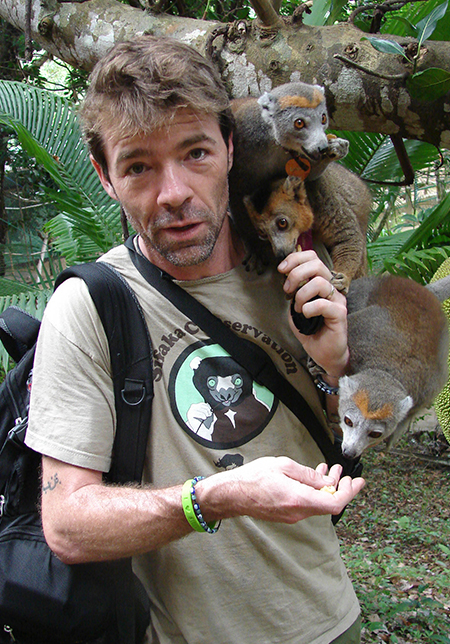Story
To highlight the plight of the world’s most endangered Lemurs, Cotswold Wildlife Park hosts its annual ‘Lemur Week’ from 27th May – 4th June 2022. Its aim is to raise awareness and funds for the Park’s conservation projects helping to save the most threatened Lemurs on earth from extinction.

Over the week we will have lots of fundraising activities happening at the Park and what better way to celebrate the week than by announcing the newest addition to the Lemur troop – an adorable Ring-tailed Lemur baby (pictured above).
The Park’s youngster can be seen exploring the large open-air Lemur exhibit Madagascar – home to 31 free-roaming Lemurs and bird species native to the island of Madagascar.
“Breeding successes are always great news, but a baby Ring-tailed Lemur is really something special. The youngster is just beginning to develop the confidence to climb off its mother and try small pieces of food. Its just like a little toddler with a stripey tail causing mischief and having fun”. - Chris Kibbey, Assistant Manager of Cotswold Wildlife Park

Since TV presenter and comedienne Ruby Wax officially opened Madagascar in 2008, there have been an impressive 65 Lemur breeding successes at the wildlife park. These births are a testament to the dedication of primate keepers and the Park’s commitment to the European Breeding Programme (EEP). During lockdown in 2020, its breeding group of Great Bamboo Lemurs (Prolemur simus) – one of the rarest primate species on earth, successfully bred at the Park for the first time (babies pictured above). Second and third breeding successes followed in 2021 and 2022 taking the total number so far to five. The International Union for Conservation of Nature (IUCN) described Greater Bamboo Lemurs as “the most endangered Lemur in Madagascar”. The Park is also home to another rare and iconic Lemur species – the Crowned Sifaka (Propithecus coronatus). Very few zoological collections in the world keep these enigmatic animals. History was made in 2017 when Cotswold Wildlife Park became the first collection in Great Britain to successfully breed this species (pictured below).

“Lemur species in Madagascar are under tremendous pressure from habitat destruction and the rapidly rising human population. It is vital that we raise awareness for this unique group of primates before it is too late. At Cotswold Wildlife Park, we are committed to conserving this species and we fund an extremely important site in Madagascar as well as participating in several other conservation projects with the Cotswold Wildlife Park Conservation Trust – most notable for the Crowned Sifaka and Greater Bamboo Lemur. We are extremely privileged to keep both of these species at the Park – they are extremely rare in captivity and they are fantastic ambassadors for our fundraising efforts”. - Curator of Cotswold Wildlife Park, Jamie Craig (pictured below)

“The work of the project Helpsimus has directly led to the Greater Bamboo Lemur being removed from the World’s 25 Most Endangered Primate list – a real achievement. Our work with Sifaka conservation has led to several new sites being identified and protected” - Curator of Cotswold Wildlife Park, Jamie Craig
Despite having only one natural predator on the island, the Fossa, many Lemur species are critically endangered. Escalating demands from human activities have placed enormous pressure on the island’s unique wildlife. Habitat loss has had a catastrophic effect on Lemur populations and Madagascar is now considered to be one of the world’s top conservation priorities. Approximately ninety per cent of the island’s forests and ecosystems had been denuded. As a result, many species are on the verge of extinction and without immediate conservation efforts, will be wiped out. For this reason, in 2013, the Cotswold Wildlife Park Conservation Trust was established. Its aim is to fund vital conservation projects to preserve future generations of Madagascar’s rarest Lemurs, including the Crowned Sifaka and critically endangered Greater Bamboo Lemur.
Great thanks to Rebecca Louise, Philip Joyce, Paul Nicholls and Jackie Thomas for the images.
 Organised by
Organised by